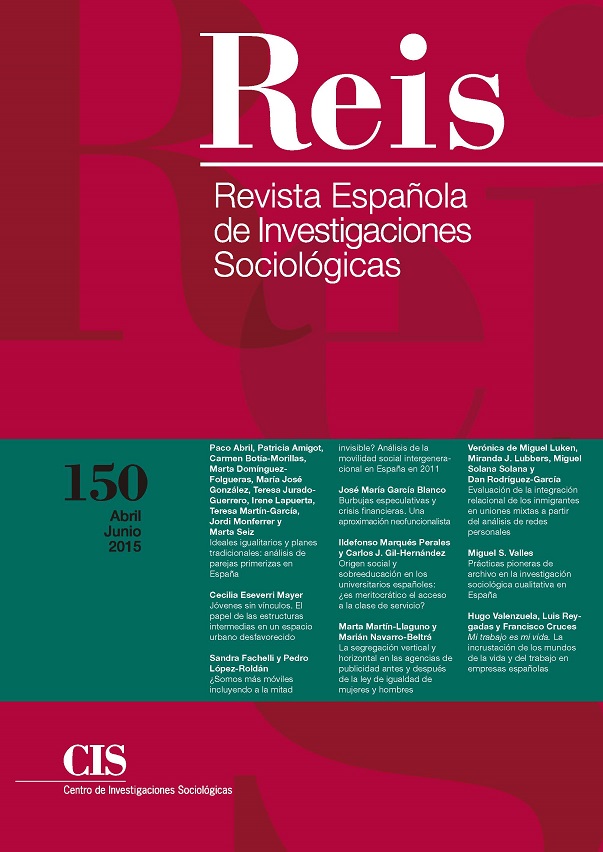Speculative bubbles and financial crises: A neo-functionalist approach
DOI:
https://doi.org/10.5477/cis/reis.150.71Keywords:
Group Cohesiveness, Economic Crisis, Differentiation, Money, Funcionalism, Social Networks, Financial SectorAbstract
If economics tends to emphasize the role of irrational behaviour in the formation of the speculative bubble that caused the recent fi nancial crisis, sociology tends to focus on the institutions and social structures that sustain the fi nancial system, particularly the dense social networks formed by fi nancial elites, which function as a socio-culturally closed circle leading to herd behaviour. This article proposes a different interpretation of this supposed herd behaviour, based on functional differentiation and how it fosters internal, second order observation.
Modern markets are a particularly striking example of this, and especially fi nancial ones in which self-referential closure is particularly intense, because they trade money, the medium that supports the self-reference of the economic system.
Downloads
Downloads
Published
How to Cite
Issue
Section
License
Copyright (c) 2024 Revista Española de Investigaciones Sociológicas

This work is licensed under a Creative Commons Attribution-ShareAlike 4.0 International License.
Permite Compartir — copiar y redistribuir el material en cualquier medio o formato, Adaptar — remezclar, transformar y construir a partir del material para cualquier propósito, incluso comercialmente.








